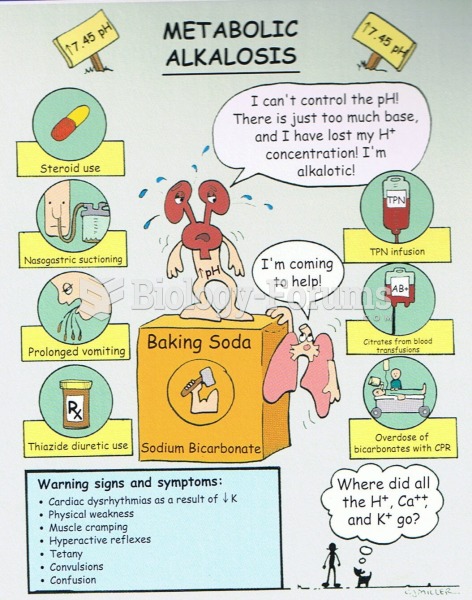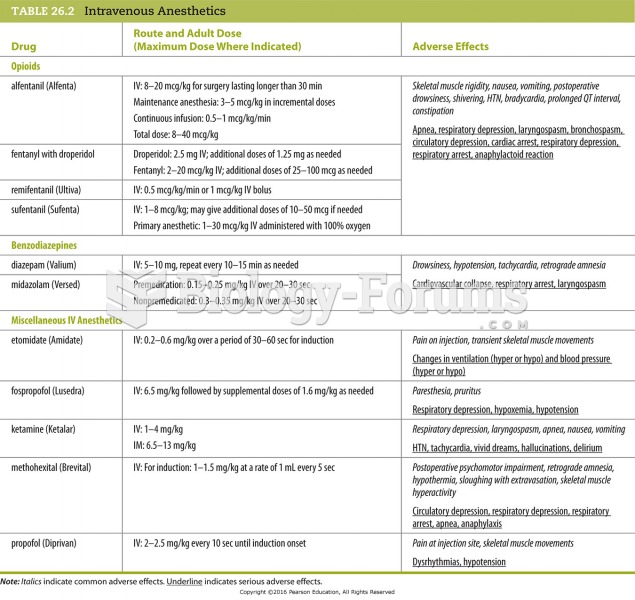|
|
|
Though Candida and Aspergillus species are the most common fungal pathogens causing invasive fungal disease in the immunocompromised, infections due to previously uncommon hyaline and dematiaceous filamentous fungi are occurring more often today. Rare fungal infections, once accurately diagnosed, may require surgical debridement, immunotherapy, and newer antifungals used singly or in combination with older antifungals, on a case-by-case basis.
Pubic lice (crabs) are usually spread through sexual contact. You cannot catch them by using a public toilet.
When blood is exposed to air, it clots. Heparin allows the blood to come in direct contact with air without clotting.
The average human gut is home to perhaps 500 to 1,000 different species of bacteria.
As the western states of America were settled, pioneers often had to drink rancid water from ponds and other sources. This often resulted in chronic diarrhea, causing many cases of dehydration and death that could have been avoided if clean water had been available.







